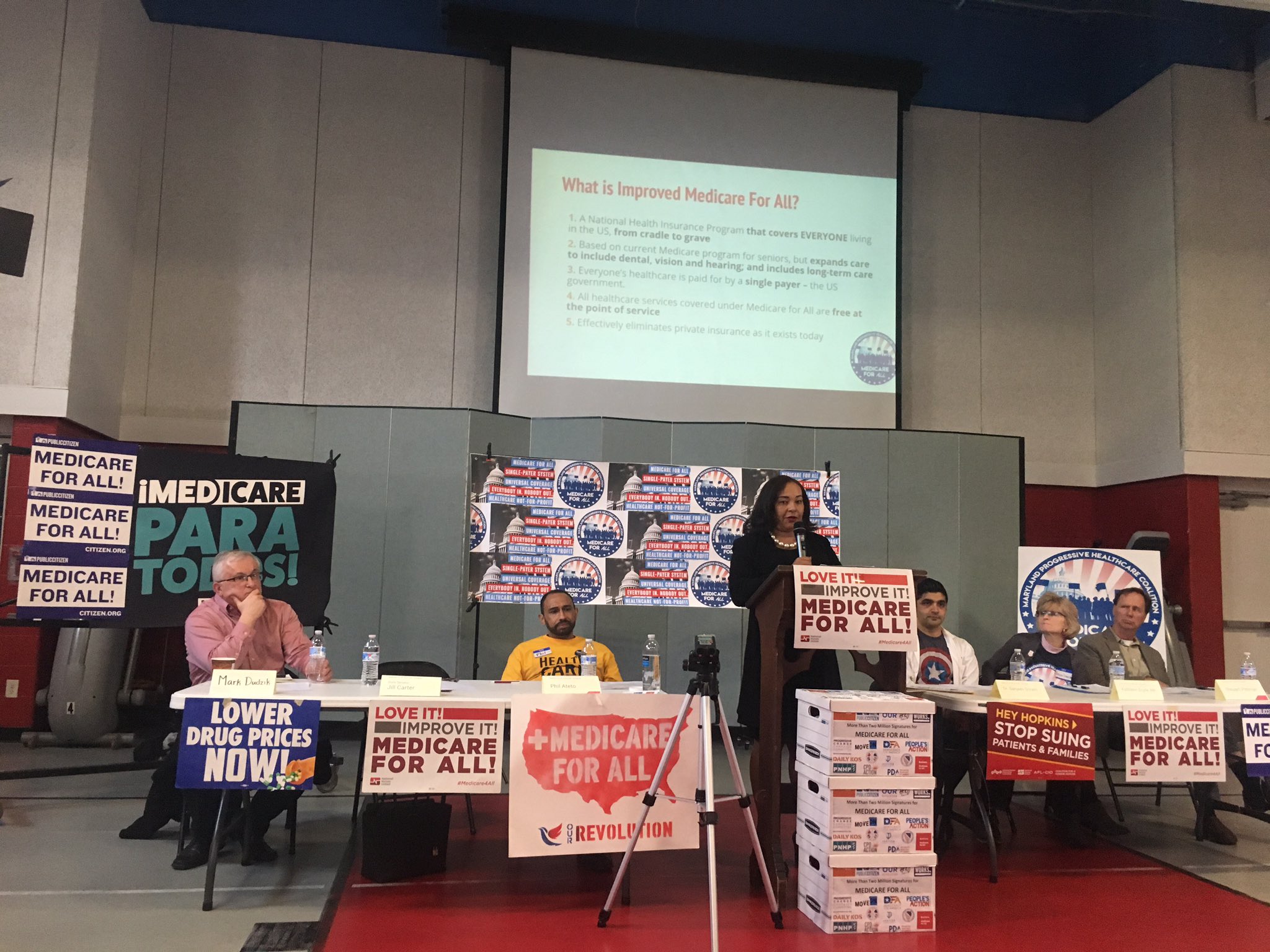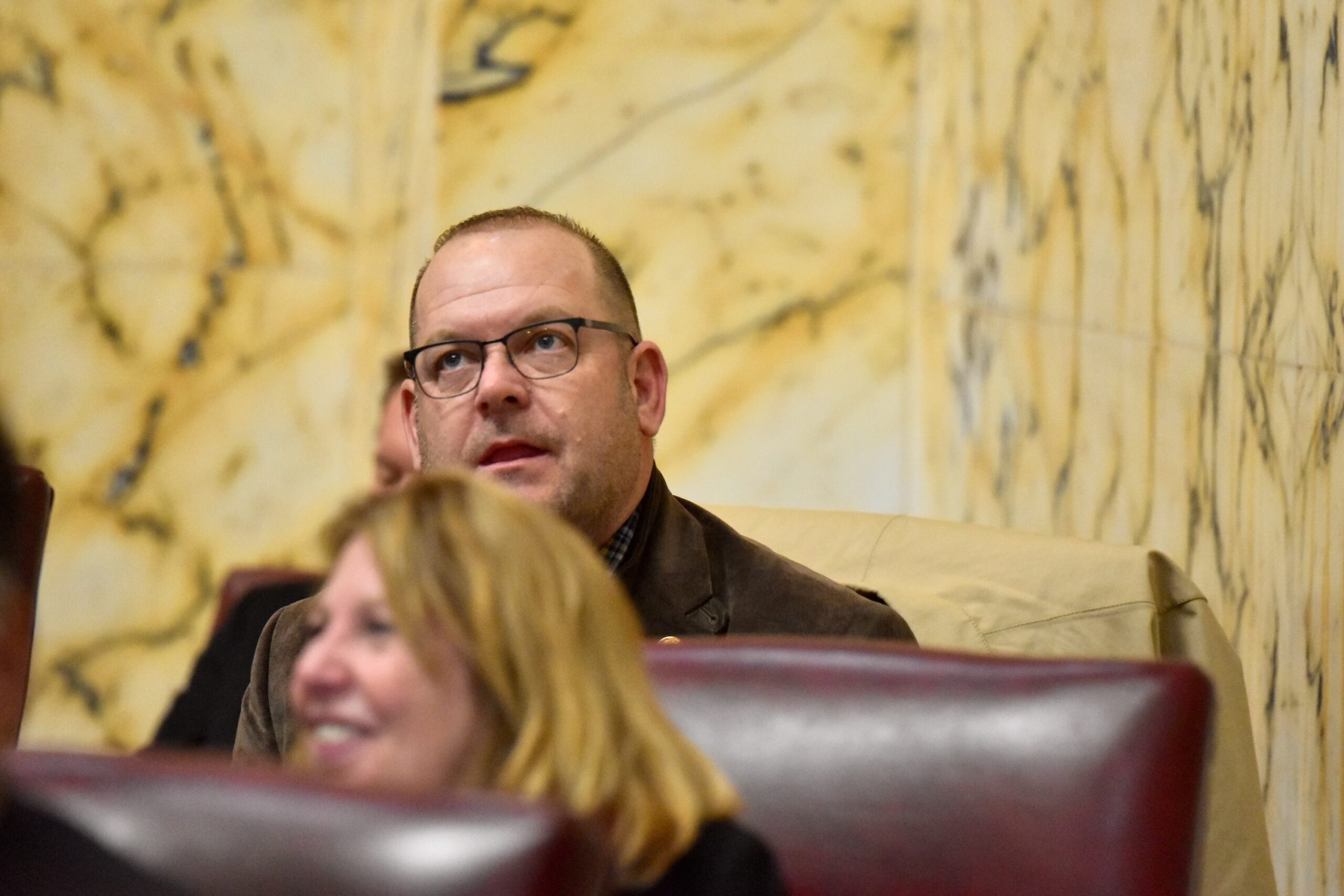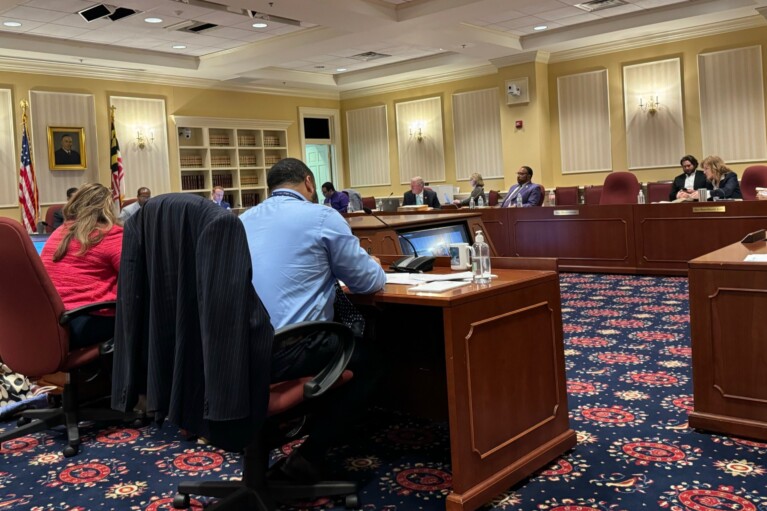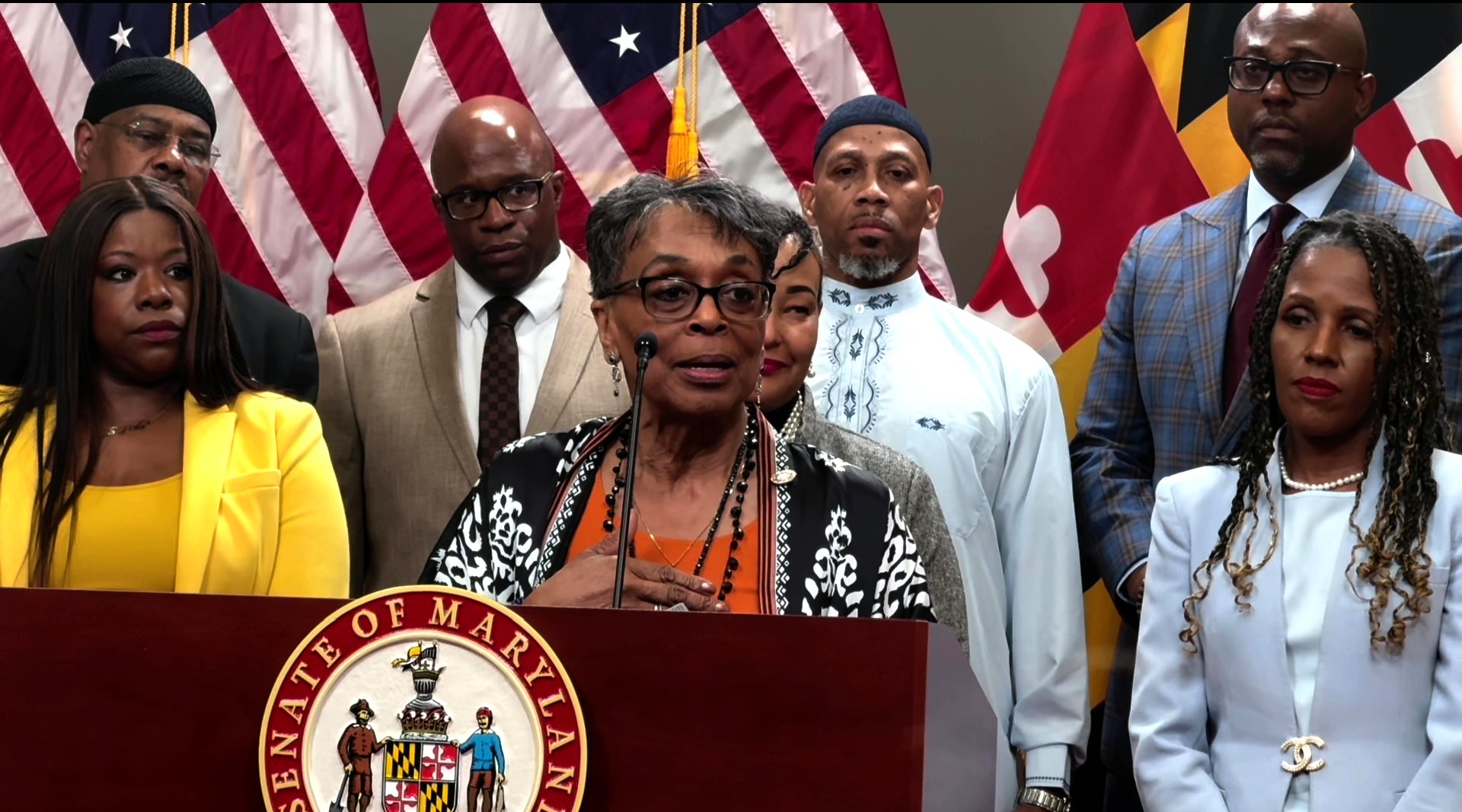Sen. Carter Says She’ll Introduce Medicare for All Legislation

State Sen. Jill P. Carter (D-Baltimore City) announced Sunday that she and Del. Gabriel Acevero (D-Montgomery) will co-sponsor Medicare for All legislation during the 2020 General Assembly session.
“There is no reason why in the richest country in the world we have not joined every other major industrialized nation in providing health care as a basic human right,” she said.
Carter’s announcement came at the fourth Medicare 4 All Town Hall in Annapolis Sunday sponsored by a number of organizations, including the Maryland Progressive Healthcare Coalition.
Carter has been a member of the Maryland General Assembly since 2003, with a short gap in 2017 and 2018. She said that over the years she has successfully sponsored more than 50 bills — sometimes without the support of legislative leadership.
“What I’m saying to you is that with a coalition of legislators, we don’t need the political establishment — we don’t need the leadership to pass this,” she said. “It can be done.”
Carter is currently a candidate in the special election for the congressional seat left vacant by former Rep. Elijah E. Cummings (D), who died in October. If elected, she said she will be a “day one cosponsor” of Rep. Pramila Jayapal’s (D-Wash.) Medicare for All legislation.
Carter sat on a panel Sunday with Social Security Works’ Senior Advisor Dr. Sanjeev K. Sriram, host of the “Dr. America” podcast Sriram discussed the benefits of adopting an improved Medicare for All plan over adjusting the Affordable Care Act, which the state of Maryland has largely adopted.
He talked about advantages that the removal of financial barriers presented by co-pays and deductibles would bring — even to people who receive health insurance through their employers. Sriram said they are getting “hustled big time.”
He said that 53 percent of people who are insured through their employer don’t seek necessary medical attention because of the high cost of co-pays and deductibles.
“That is not insurance,” Sriram said. “That is a hustle.”
He also cited statistics about who is and isn’t insured. Sriram said that even with the ACA, 355,000 Marylanders are without health insurance and that over 70 percent of those people are of color.
Sriram said that people of color bear the “undue burden of being uninsured” because of two questions asked in the application process:
- Where do you live?
- How much do you earn?
“The thing is, is that neither of those questions sound racist. Both of those questions have racist impact,” he said, adding that the majority of people of color in the U.S. earn less than $40,000 a year.
“That means that when you are asking people ‘How much do you earn?’ in determining their health care, you are inherently questioning ‘Are you worthy of being covered with health care?’” Sriram said.
Annapolis resident Phil Ateto also spoke on the panel, describing his battle with CareFirst and CVS Caremark Specialty Pharmacy.
Ateto was diagnosed with multiple myeloma — a type of blood cancer — in 2008 and has experimented with different treatment plans for nearly a decade.
“In my experience and from what I understand with incurable cancers like mine, the journey is like a game of Frogger: The doctors have a list of drugs, and choose the best ones to treat given your body’s responses to them,” he said to the audience. “These drugs may or may not work, and whenever they stop working, it’s time to move on to another.”
Ateto said he hit a wall in November 2019, when the drug he was using at the time stopped working. His doctor gave him a few options: chemotherapy or Venetoclax — a drug not approved by the Food and Drug Administration to treat his cancer, though he said it’s been used in trials for multiple myeloma and has shown success with similar blood cancers.
Ateto opted for the drug treatment.
He said the medication was pricey: around $10,000 to $20,000 a month depending on the provider. Citing their policy on specialty and high-cost drugs, Ateto said CareFirst subcontracted the decision to CVS Caremark, who, despite appeals from his doctor, denied him the medication, calling it “not medically necessary.”
After a few denials and with no real progress in sight, Ateto said he started to feel his body deteriorate. In December, the community rallied around him, starting a GoFundMe campaign in his name and aiding him in visual protests projected in light on the CareFirst building that read statements like “All I want for Christmas is a chance to live #KeepPhilAlive.”
Ateto said he was looking down the last few months of his life, refusing the chemotherapy.
“I decide to forego the other option with the intense chemo because if this was going to be my last Christmas and New Year’s with loved ones and friends … It wasn’t going to be in the hospital,” he said as he held back tears.
After an arduous battle, Ateto received the news on New Year’s Eve that a top CareFirst executive approved the experimental drug. Since his approval a few weeks ago, he says his health has vastly improved, but that this “happily ever after” is further reason to scrutinize the health care system as it currently exists.
“While I’m grateful and overjoyed in my situation to be cheating death for a while longer in the short term, I feel the journey to get to this point in the last couple of months is a further indictment of our health care system,” he said.
“Similar to justice, delayed health care can be … as bad and deadly as denied care. And it almost was for me.”




 Creative Commons Attribution
Creative Commons Attribution